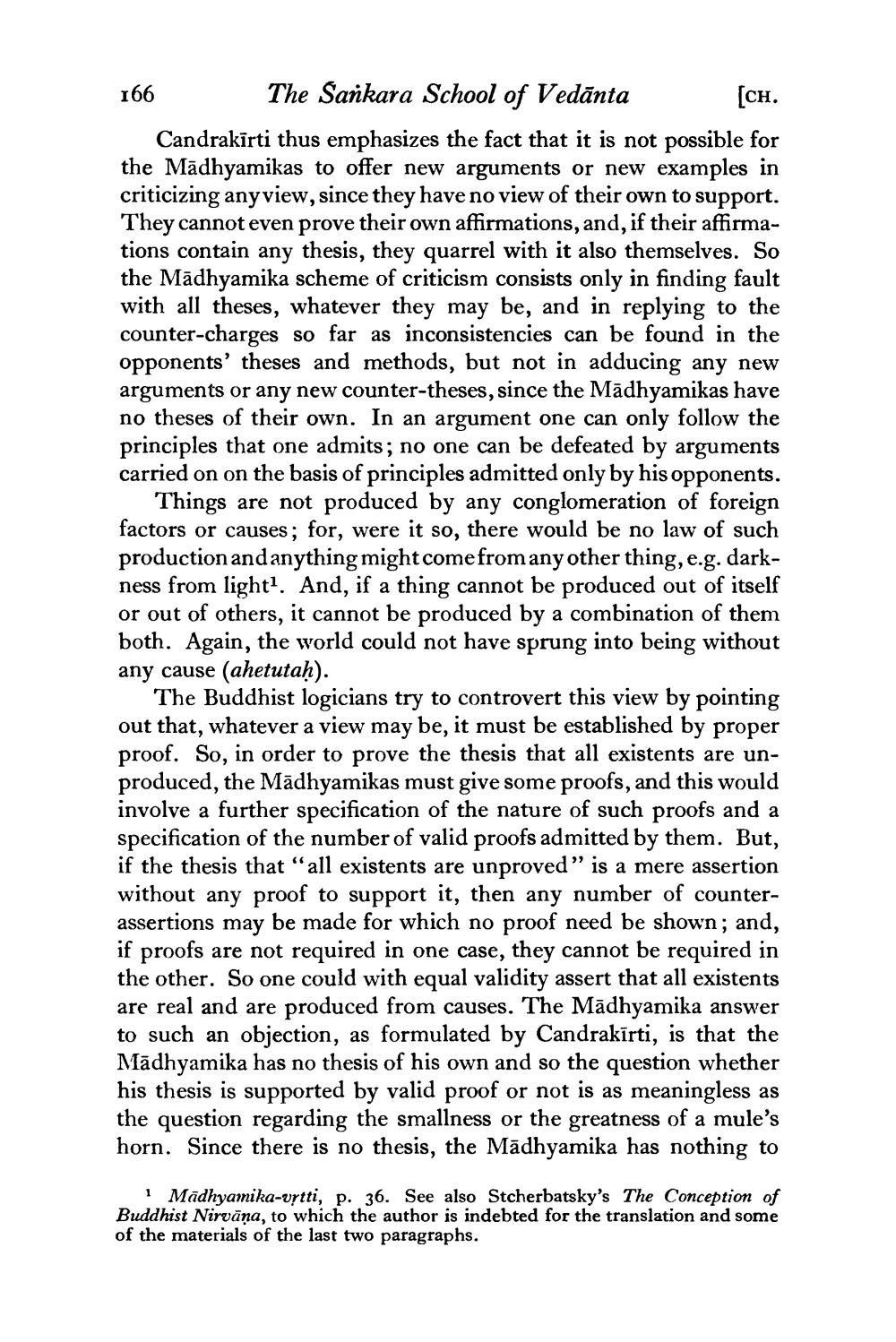________________
166
The Sankara School of Vedānta [ch. Candrakīrti thus emphasizes the fact that it is not possible for the Mādhyamikas to offer new arguments or new examples in criticizing any view, since they have no view of their own to support. They cannot even prove their own affirmations, and, if their affirmations contain any thesis, they quarrel with it also themselves. So the Madhyamika scheme of criticism consists only in finding fault with all theses, whatever they may be, and in replying to the counter-charges so far as inconsistencies can be found in the opponents' theses and methods, but not in adducing any new arguments or any new counter-theses, since the Madhyamikas have no theses of their own. In an argument one can only follow the principles that one admits; no one can be defeated by arguments carried on on the basis of principles admitted only by his opponents.
Things are not produced by any conglomeration of foreign factors or causes; for, were it so, there would be no law of such production andanything might come from any other thing, e.g. darkness from light. And, if a thing cannot be produced out of itself or out of others, it cannot be produced by a combination of them both. Again, the world could not have sprung into being without any cause (ahetutaḥ).
The Buddhist logicians try to controvert this view by pointing out that, whatever a view may be, it must be established by proper proof. So, in order to prove the thesis that all existents are unproduced, the Mādhyamikas must give some proofs, and this would involve a further specification of the nature of such proofs and a specification of the number of valid proofs admitted by them. But, if the thesis that "all existents are unproved” is a mere assertion without any proof to support it, then any number of counterassertions may be made for which no proof need be shown; and, if proofs are not required in one case, they cannot be required in the other. So one could with equal validity assert that all existents are real and are produced from causes. The Mādhyamika answer to such an objection, as formulated by Candrakīrti, is that the Mādhyamika has no thesis of his own and so the question whether his thesis is supported by valid proof or not is as meaningless as the question regarding the smallness or the greatness of a mule's horn. Since there is no thesis, the Madhyamika has nothing to
1 Madhyamika-vrtti, p. 36. See also Stcherbatsky's The Conception of Buddhist Nirvana, to which the author is indebted for the translation and some of the materials of the last two paragraphs.




